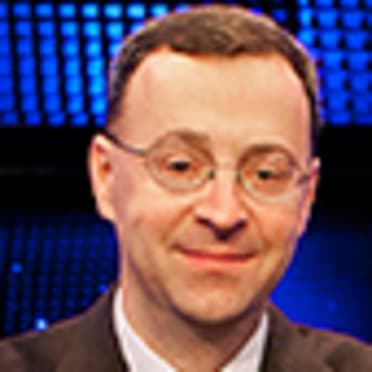MESA, Ariz. -- The Giants selected Steve Soderstrom with the sixth overall pick in 1993, and 27 years later, son Tyler joined him in the first round when the Athletics took him at No. 26. One of the best high school hitters in the 2020 class, Oakland's top prospect (No. 56 on MLB Pipeline's Top 100 Prospects list) signed for $3.3 million and batted .306/.390/.568 with 12 homers in 57 Low-A games during his pro debut last year. The catcher missed the second half of the season with an oblique injury that also prevented him from attending the Arizona Fall League.
Jim Callis: Tyler, I have to admit it makes me feel a little bit old interviewing you because I interviewed your dad back in 1993 when I was at Baseball America and he was at Fresno State. I'll start off with kind of a silly question. If your dad in his prime was facing you, who wins that battle pitcher vs. hitter?
Tyler Soderstrom: I'm going to go with myself, obviously. I just think I'd dominate him.
Callis: How much did it help having a dad who played professional baseball and got to the big leagues as your career was going on? I have to imagine it was a huge help.
Soderstrom: It helped a lot having someone that went through it. Just him knowing what it takes to get there and stay there because that's what everyone wants to do, stay in the big leagues. So just him helping me get through all the mental part of the game, that's the biggest thing right there. That knowledge of that aspect of the game, that's really going to help me the most.
Callis: What did you think of your first year in professional baseball? You had the oblique injury, so you didn't get to play quite as much as you would have wanted and weren't able to go the AFL. But when you played, you were pretty successful, and you got to go to the Futures Game.
Soderstrom: My first year was awesome. It was a great first season for me, I learned a lot, so that was good. Obviously, I didn't enjoy the setback with the oblique. That kind of sucked. But I think I learned a lot from last season. I'll be able to take that into this season and be able to stay on the field all year.
Callis: You've been in pro ball for about a year and a half. How much do you think you've learned and improved during that time? What specifically have you learned and improved?
Soderstrom: I've learned a lot, especially behind the plate. I came in and was pretty raw behind the plate. I've been working my butt off back there with all my catching coaches, so it's been good. I think the biggest part is just the blocking. I really figured the receiving part out and the throwing. Catching-wise, I'm right where I wanted to be. I've definitely learned a lot back there and obviously the bat's always been pretty steady. That's always been my biggest strength. So I just think learning pitch recognition in certain counts and stuff like that, keep building on that.
Callis: How much is catching important to you? Is that something you really want to do, stay behind the plate, or are you philosophical about it? Hey, I get to the big leagues, I don't care where I'm playing. How much does it matter?
Soderstrom: It matters a lot. I enjoy being back there. I've done it my whole life. But I just want to do what the A's want me to do. If they want me to catch, I'll catch. And if they want to play somewhere else, I'll play somewhere else. I have the ability to play anywhere really, in my eyes. But I love catching. That's what I want to do.
Callis: Do you feel more comfortable behind the plate than you did as an amateur?
Soderstrom: Especially receiving-wise, blocking-wise. I'm not really nervous back there at all. I feel comfortable and it's something that feels good.
Callis: You didn't get a full season last year, but how tough is it to balance the grind of catching, the responsibilities and the physical toll, with trying to be successful at the plate?
Soderstrom: It's tough. It definitely takes a lot of preparation, a lot of extra work. Meet with the pitchers before the game, you've got to watch video, go over scouting reports, so it's definitely tough mentally sometimes. You've just got to grind through it. I don't think it really takes a whole lot away from me at the plate. I like being back there, always being involved in the game. It kind of keeps me loose for my at-bats. It's tough but I enjoy it.
Callis: Does being a catcher help you at the plate? Do you think about if I was calling pitches against myself, try to think along with the catcher and pitcher when you're in the box?
Soderstrom: I'm pretty simple at the plate. I'm just trying to hit a heater and be on time. The two most important things are to be on time and hit fastballs.
Callis: We always have fans asking us about comparisons for players. I don't think I've really heard a Tyler Soderstrom comp. Have you heard any good ones?
Soderstrom: I've heard a couple, like Shawn Green hitting-wise, Eric Chavez. I like to think of myself as more like a Joe Mauer sometimes.
